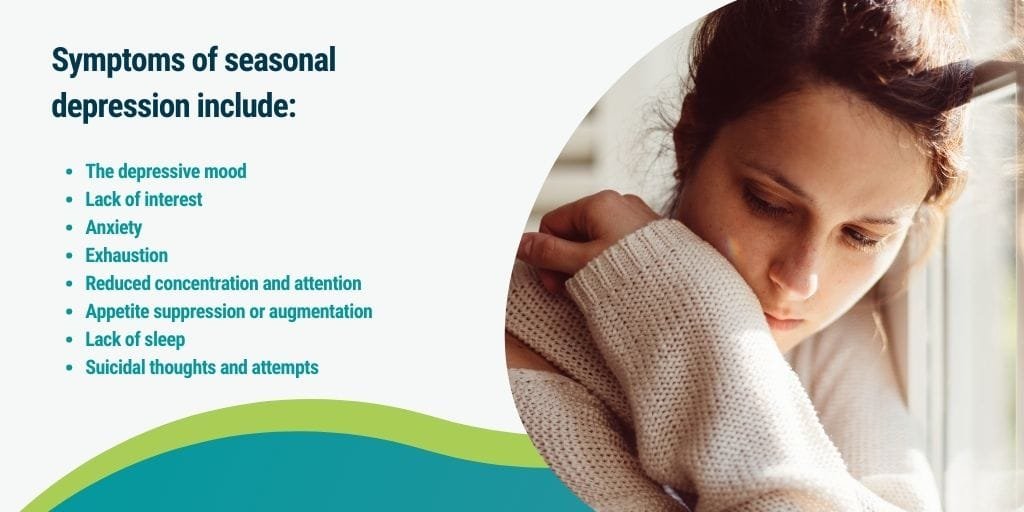Seasonal melancholy formally called Seasonal Affective Disorder (SAD) impacts many individuals as the seasons trade especially all through the darker less warm months.This situation was first diagnosed through Dr.Norman Rosenthal a psychiatrist who observed the connection between lack of sunlight and the onset of depression. Fortunately Dr.Rosenthal and different professionals have identified several techniques to save you and manipulate this form of despair supporting individuals to cope during those challenging seasons.
In this newsletter we will wreck down expert suggestions on stopping seasonal depression based totally on Dr.Rosenthal’s studies and advice.
Get Plenty of Natural Light
One of the primary reasons for seasonal depression is the dearth of sunlight.Dr.Rosenthal discovered that decreased publicity to herbal mild within the winter months can throw off our internal clocks disrupting mood regulating hormones like serotonin.To fight this it’s vital to maximise your exposure to daylight.
- Try to spend time outdoors for the duration of daytime, although it’s cloudy.
- Aim for at least 30 minutes to an hour outside mild each day.
- If viable, sit close to windows all through the day to get the maximum natural mild.
Consider Light Therapy
For folks that cannot get right of entry to enough herbal sunlight, mild therapy may be highly powerful.Dr. Rosenthal became instru mental in promoting this remedy, which involves sitting close to a unique mild container that mimics natural sunlight. This therapy is frequently recommended for people residing in regions with lengthy winters or restrained daylight.
- Use a mild therapy field for approximately 20 to 30 minutes a day, ideally in the morning, to reinforce mood and reset your circadian rhythm.
- Ensure that the light field offers at the least 10,000 lux of light and has been tested to help with SAD.
Stay Active with Regular Exercise
Exercise is a powerful tool for preventing depression, and Dr. Rosenthal strongly advocates for bodily hobbies as a way to prevent seasonal despair. Regular exercising boosts the release of endorphins, the frame’s natural mood elevators.
- Aim for at the least 30 minutes of exercising maximum days of the week.
- Activities like strolling, swimming, or biking can all help raise your temper and decrease pressure.
- Yoga and stretching can also be beneficial for relieving any bodily tension because of the less warm months.
Maintain a Healthy Diet
What you consume can significantly impact your temper and strength stages. Dr. Rosenthal suggests a balanced food plan as part of the approach to fight seasonal depression. Foods rich in omega-3 fatty acids, vitamins, and minerals can assist adjust temper and support mind features.
- Eat foods rich in vitamin D, inclusive of fatty fish, fortified cereals, and eggs, to help counteract the dearth of daylight.
- Incorporate greater complicated carbohydrates like complete grains, that can sell stable blood sugar and improve temper.
- Avoid overindulging in processed sugars, as they are able to cause electricity crashes that get worse depressive symptoms.
Build a Strong Social Support System
Social connections are important for intellectual nice-being, especially during the icy months while isolation can accentuate emotions of depression. Dr. Rosenthal encourages staying socially energetic and searching for help from her family, friends, or even professional therapists.
- Try to preserve ordinary social engagements, inclusive of assembly pals for espresso or collaborating in group sports.
- Reach out to cherished ones while you sense down or crushed.
- Consider becoming a member of support companies for those who battle with seasonal depression for additional encouragement.
Practice Mindfulness and Relaxation Techniques
Mindfulness and relaxation techniques, along with meditation, deep respiratory, and innovative muscle rest, can help reduce pressure and improve mental clarity. Dr. Rosenthal suggests that integrating those practices into each day’s routines can help prevent the accumulation of anxiety and emotional di stress associated with seasonal modifications.
- Try mindfulness meditation or deep respiratory physical activities for a couple of minutes each day to middle your mind and body.
- Explore apps like Headspace or Calm to manual you through relaxation practices.
Manage Sleep and Circadian Rhythm
Dr. Rosenthal emphasizes the importance of retaining a normal sleep agenda. Poor sleep, excellent or disrupted circadian rhythms can exacerbate seasonal despair. Lack of sunlight can interfere with sleep styles, leading to feelings of fatigue and irritability.
Try to awaken and go to bed at the identical time every day to modify your frame’s internal clock.
Avoid excessive display time before bed, as the blue light emitted through telephones and computers can interfere with sleep.
Consider the use of a wake-up mild that simulates the dawn to assist ease the transition from sleep to wakefulness.
Conclusion
Seasonal despair may be a hard situation to cope with, however by way of implementing Dr. Norman Rosenthal’s professional hints, you can better manipulate or even prevent the signs and symptoms. Whether it’s growing daylight exposure, staying lively, or managing your sleep, taking small but constant steps can help you live energized, prompted, and emotionally balanced, irrespective of the season.
FAQs
What is the first-rate light therapy for seasonal depression?
The excellent mild therapy includes the use of a light field that provides as a minimum 10,000 lux of mild, ideally at some point of the morning hours. This mimics herbal sunlight and may assist reset your circadian rhythm.
How good a workout must I do to prevent seasonal melancholy?
Dr. Rosenthal recommends 30 minutes of exercising maximum days of the week. Physical activity, especially outside exercising, can help adjust temper and combat fatigue.
Can weight loss programs without a doubt affect seasonal melancholy?
Yes, a healthy diet wealthy in omega-3 fatty acids, nutrition D, and complicated carbohydrates can assist keep balanced blood sugar levels and aid brain characteristics, which can reduce signs of despair.
How does mindfulness help with seasonal despair?
Mindfulness techniques which include meditation and deep breathing can reduce pressure, enhance mood, and help people stay gifted and grounded during times of emotional distress.
Can I prevent seasonal despair although I live in a place with limited daylight?
Yes, mild therapy, normal exercise, a wholesome food regimen, and mindfulness practices can appreciably assist save you or control seasonal despair, even in places with limited daylight.







